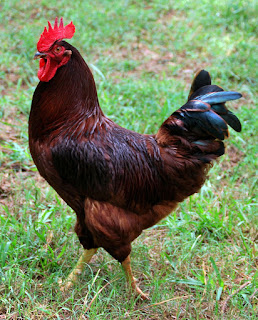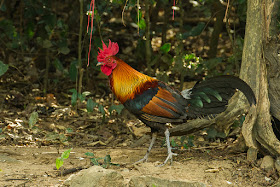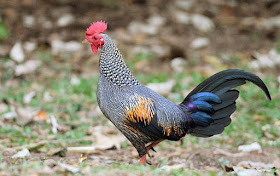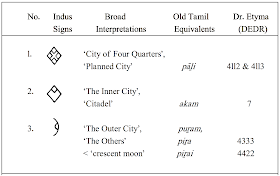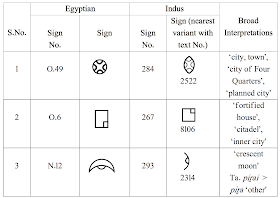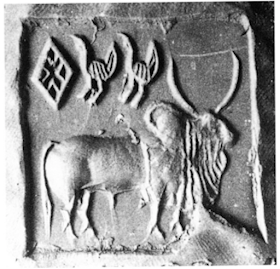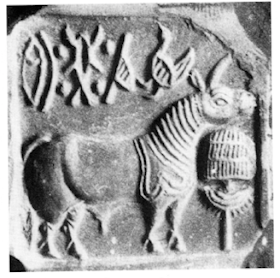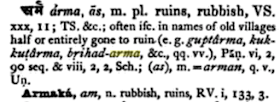Jan 26, 2025
Have you ever thought how it would feel if one went to one’s alma mater after half a century? How would everyone be? Would they be fit enough to attend? How many would be with walkers or wheelchairs? Or will they come dancing as they they enter the college one more time after many years of career growth and deverlopment.
On the 25th of December 2024 our Alumni was invited to travel the same road that Sarah traveled as a seventeen year old, to stay for two days and nights at the Peoples University of Medical Sciences (PUHMS) to celbrate the Golden Jubilee of the university that was founded in May 1974. The decision to attend was exciting because the college we graduated from, Nawabshah Medical College, has now morphed into a prestigious university that has widespread international recognition with its graduates spread all over the world. Moreover, the members of our alumni aren’t in boring run of the mill jobs, they are valuable members of the medical profession and positive influencers in the communities they are living in today.
Much to the concern of the organisers, we opted to travel from Karachi to Nawabshah in the college bus, just as we did that hot sultry day in May 50 years ago. They were worried about our physical health, whether we could tolerate the five hour drive into the interior of SIndh. Heh, heh, little did they know that we were rocking to popular songs and were dancing, or standing in the aisles most of the journey. We may be from the first batch of the college, but heaven forbid if anyone called us decrepit.
IMG_4397
Arriving at the college, as the bus eased itself slowly within the massive gates, the first impresion was a kaleidoscope of lights. Thousands of twinkling lights decorated the buldings and the gardens of the campus. But hark… was that a local folk band that we hear playing?
We exited the bus, no we jumped off the bus to cheers of the younger alumni who had arrived earlier and the final year medical students who had stayed back instead of going home for the winter holidays. The sound was deafening, but oh, so uplifiting! We didnt hold back, we swung and stepped into a traditional folk dance which made everyone cheer even more. Take that! We laughed. We are not decrepit!
IMG_4390
The Vice Chancellor of the University was there to welcome us which was appreciated. We were give rooms in the rest house that was especially built for visitors to the university, and all of our needs were well taken care of. Whether it was a cup of tea at odd hours, a delicious breakfast or ensuring that we had hot water to shower in.
We were repeatedly asked what batch we were from, and it was fun to watch the surprise on everyone’s face when we said that we were from the first batch. No, no, we are not pulling your legs,” we would say. “We are really from the first batch!”

The hospitality, the respect and most of the the unadulterated fun that we had was exceptional. Many of our friends and colleagues who decided not to attend regretted it later on when we showed them the videos and the photographs.
The formal program the next day had the usual official speeches alongwith one from the Minister of Health. I spoke as a representative of the alumni to cheers of the audience.
Awards, accolades, pictures on the alumni wall of pride and musical programs filled the rest of our visit. The next day even though we travelled back together once again, there was a thread of sadness in our moods. I think it was because we were aware that this celebration would not be repeated in the near future. At least not in our lifetime. But we were able to connect to friends and get their contacts. The age of the internet is helping us stsy in touch which is so much better than when we went to make our mark in the world after we graduated.




The college in Lifelines, where Dr. Sarah studues is based on this college. Our Alma Mate.
Oct 16, 2024
“To be haunted is to glimpse a truth that might best be hidden.” ~ James Herbert, Haunted
Sarah
The room we were shown to was beautifully decorated. There was an old-world ambience that struck me the moment I walked in. There were some old but polished wood panels at the head of the big double bed and the walls were papered with embossed cream wallpaper. On the far side of the room was a balcony leading from the massive French windows to overlook the inner courtyard, which was
resplendent with fowers and vines. The abundance of geraniums created quite a splash of color and the air was fragrant with a bouquet of floral smells. In normal times, this would have been such a nice place to relax.
I turned away from the balcony, walked back into the room, and closed the windows since the air was still a bit crisp. In spite of that, somehow the room started to get even colder. There was a chilly draft that blew through it, and I looked everywhere to see where it was coming from. My skin erupted into goosebumps and the hair at the nape of my neck stood on end. Then I realized this wasn’t just an
aberration in the weather—it was something else. I slowly turned around, wondering what I might see or feel. Sometimes I would get irritated when I was made aware of “presences” or other supernatural entities. It was at times quite tiresome.
As I turned in a full circle, I saw a woman sitting on one of the chairs that were set around a small coffee table in a corner of the room. Her face was in the shadows, but her
clothes were defnitely from the 1950s. Her sleeveless light blue dress had a puffed out skirt, and you could see the scalloped lace of her can-can petticoat peeping out from under the hem. She wore matching pumps and, although she wasn’t smoking (I wondered if she actually could), she languidly held a long cigarette holder in her hand.
“What are you doing here? What do you want?” I asked her. She looked quite solid, though the occasional blurring of her outline convinced me that she wasn’t completely human.
She looked startled. “Can you see me?”
“Of course, I can!” I was getting annoyed.
“Praise the Lord! I thought that I would have to wander these dusty halls forever. You have to help me. I need to cross over.”
“Who are you?” I didn’t want to get sucked into another supernatural drama, or any drama as a matter of fact, just as we were trying to unravel our own.
“Oh, excuse me, my name is Mrs. Seymour Fogarty-Hughes. I have been here since 1950.”
“Do you have a name of your own? Or are you bound to your husband’s name? And would you like to tell me why you are haunting this hotel, and especially our room?”
“Our? Oh, yes, I did see that you were here with tall, dark, and sexy. What is her name? Tanya?” She smirked.
I
was astounded that she looked so real and not like a regular spirit or ghost. “My name is Margaret,” she said fnally after a long pause.
“Not that you need to know. It’s irrelevant. You have to know what I want to tell you and that’s all.”
“If you want my help you need to tell me your whole story. Then, and only then, will I decide whether to help you… or not.” I didn’t like her smug and superior attitude. It was just like British colonials used to treat the poor “natives.” Bloody snobs.
As if reading my mind, she said, “I am not a snob; far from it. Neither am I a racist, so you can wipe that
judgmental look of your face.” She sighed and took a phantom puff from her cigarette holder. “My husband, Seymour Fogarty-Hughes, was a political liaison officer between the British and the tribes in the Frontier Region. We often stayed at this hotel. It was quite convenient and very up to par with comfortable amenities as we knew them, but he used to leave me alone for days with nothing much to
amuse myself. I read most of the books in the library, and I didn’t play cards or billiards, so I was completely bored.”
There was an undulation in her image as if a gust of wind had blown over a pond of water causing small ripples. Margaret gripped the side of the sofa as if she wanted to steady herself, took a deep breath and continued with her narrative. “Out of boredom, I started to talk to the stff here at the hotel. Everyone was well educated, and I learned a lot more about India and Pakistan from them than at my expat women’s clique. It was fascinating. I had studied journalism in Oxford and I was itching to write about this rich multicultural country with different cultures, languages and even clothes in every one of its corners. Seymour wasn’t enthusiastic about that. To him, I was the wife and he was the breadwinner, and I shouldn’t rock the boat.”
I was fascinated by Margaret. She looked so real, and yet there was something ethereal about her, as if the ways and worries of the world hadn’t yet touched her.
“The in-house doctor was a handsome man, and I was enthralled with his knowledge. He could talk about so many things and yet make me want to hear more. We would sit for hours just talking over innumerable cups of tea. That too in the lobby, where everyone could see us. I loved him, but I wasn’t in love with him—I loved my disreputable Seymour until the end.” She looked so sad that, had she had some substance, I would have offered her a hug.
“Dr. Khurram had a fancé.” She continued her story. “Zainab was a beautiful woman and would sometimes sit with us in the evenings on the hotel lawn under the starry sky. She wasn’t very educated, but she would chip in many times. I thought that she was also my friend, that she
understood the nature of my friendship with Khurram.” I saw a ghostly tear make its way down her cheek. “The closer we got, the more jealous she became, and it came to a point that one day she lay in wait for Seymour when he came back from a week-long tour at the Frontier. She told him that she
suspected that Khurram and I were having an affair. Which was totally absurd. We were never alone and both of us behaved with absolute decorum.”
Margaret got up and started her ghostly version of pacing in the room, which was more like floating, but I didn’t interrupt her. I wanted to know where this story was heading. Finally, she sat down again. I could see that she was disturbed, as if talking about what had happened pained her physically as well as emotionally. “I was just getting ready to go down for dinner after my afternoon nap when Seymore
barged into the room. His face was distorted in anger, and when he spoke, he was spraying his spittle all over the place.
“Margaret! What is going on? Why are you consorting with a bloody native? Have you no shame? No pride in being English?” He literally spat the words at me and harangued me for a long while because of my “betrayal to country and crown.” I was tainted, dirty, not worthy of being Mrs. Fogarty-Hughes… etc., etc.” She gave a shudder. I could feel the waves of fear and despair coming from her.
“He didn’t even let me get a word edgewise. He just went on and on. When he finally wound down due to fatigue, I told him we were just friends. There was no need to get upset.”
“He never gave you a chance to explain,” I said quietly, feeling very bad for her.
“No, he didn’t, and when I tried to explain, to tell him he was mistaken, he yelled at me for talking back to him. That day, in his rage, he stepped forward and punched me in the face. Just near my cheekbone. Khurram, having heard what his wife had done from the concierge, who saw and heard everything, came to save me. He was too late—Seymore already had his hands around my neck and was squeezing the life out of me. My last words before I lost consciousness were, ‘I love you Seymour.’ I saw the shock in his eyes when my eyelids finally closed… ‘forever.”
Poor woman…no wonder she haunted this room. She had died here and was looking for justice. She didn’t know that there were certain factions that would tell you about power witches or warlocks that would help. However, this wasn’t a case for seances and spells. Margaret’s ghost was visible and asking for help herself.
“What can I do to help you?” I felt genuinely sorry for her.
“Wait…there is more.” She rubbed her ghostly eyes and the bridge of her nose with the �ngers of her right hand before she looked at me. I wondered if that was a habit that she had had when she was alive.
“Dr. Khurram was flabbergasted at what Seymour had done. He wanted to call the police, but before he could do anything, Seymour told him that if he didn’t help hiding my body, he would tell the authorities that he and his fiancé had killed me. Khurram was pushed into a tight spot. Who would the police believe? The white sahib? Or the native doctor who was seen socializing with the white sahib’s wife?
No one would blame him if they thought that Seymour was justified in killing me. He could have spun it into a crime of passion, which in a sense it was.”
Both of us were quiet for a few moments. I was wondering what to do to help Margaret. To my knowledge, when a ghost is still tethered to the earth, it was because of unfinished business, or because they had died a violent death and wanted either retribution or have their remains found
and laid to rest.
“Do you know where you are buried?” I finally broke the silence and asked her.
“Buried? Hah! No such chance! I am incarcerated into the wall behind the wood paneling. There is a secret switch than can slide the wall open and you can find me there. Not a pretty sight, I am sure.”
“In this room? You have been here all these years?” I was shocked. How could that be?
“These old buildings have secret rooms and nooks that were used by the British to hide important documents and other valuables. Their existence was known to very few people. I am sure that the original owners of the hotel aren’t around anymore; otherwise, these little rooms would have been common knowledge by now.” Margaret had answered my question before I could ask why there were secret rooms in the hotel. She was quite an astute…lady?… ghost? Oh, whatever!
“Yes, and you are the only person who could see me and talk to me. You must have quite strong powers!”
Margaret told me that she had tried to get the hotel guests’ attention by moving things, but if anyone noticed, they would leave the room in fright and not come back. The hotel staff themselves had shamans and mullahs come in to “cleanse” the place, but Margaret had stubbornly held on.
Nodding to Margaret as I made my decision, I thought to myself that if I was going to move wall panels, I would need Tanya. I definitely couldn’t do it all alone.
Tanya
After my call to Razia, I went to the railway station, which was conveniently behind the hotel. I managed to get two tickets for a private two-person sleeper compartment. At least we would have privacy for as long as we were on the train. The tickets were for that same day, within the next couple of hours and just to Multan. In case anyone asked about us, they would be told that we bought the tickets for there, but once we were on board, I would talk to the conductor and get the tickets extended to Nawabshah, and from there we would extend the ticket once again onwards to Karachi. Although everyone was aware that our final destination was Karachi, I didn’t want to make things easy for them, and we didn’t know if we were going to be forced off the train somewhere along the line. I knew for sure that my colleagues in Nawabshah would help us if we were in trouble. Nevertheless, I just wanted to go home. No matter how, and fast.
As I neared our room, I heard Sarah talking to someone. I groaned inwardly. I was in no mood to socialize. Sarah always found someone to talk to. She loved learning about peoples’ lives and what made them tick. When I entered the room, I saw that Sarah was facing one of the chairs and talking animatedly with whoever was sitting there. As I neared the chair, I nearly fell over
backwards—there was no one there! Sarah was talking to …no one!
“Who are you talking to?” I looked from her to the empty chair. I didn’t think she was losing her marbles; I knew that she always had an explanation for her weird behavior. Sarah looked up at me and gave me one of her beautiful smiles. The one that melted me, the one where I knew that she wanted something from me.
“Can’t you see Margaret?” she asked.
I silently shook my head. Sarah looked towards the empty room and asked, “Is
there any way that Tanya can see you as well?” She cocked herhead as if she was listening to someone and nodded. Then she held out her hand to me. I took it and she put her other hand on the arm of one of the chairs, while indicating that I had to put my hand on the other one. Sarah closed her eyes
and whispered some inaudible words. Within a few seconds, I saw a form slowly materializing on the chair.
“Hello, Tanya,” said the vision. I nearly fell over in surprise.
“Hello,” I answered. “What is going on?” I looked from Sarah to the apparition on the chair.
“This is Margaret.” Sarah sounded impatient. “She wants us to find her remains so that she can rest in peace.”
“Right. And how are we going to do that?” I asked.
“Margaret says that her body is behind the wooden paneling in this room. There is a hidden switch that will slide the wall open. We need to find that switch and get her out of there.”
“Oh, no! We don’t have time for that. Our train is leaving in a couple of hours.” Even though I did protest, I knew that Sarah wouldn’t leave until she at least tried to find the hidden switch, and then of course Margaret’s remains.
“Come on, Tanya, this could be fun! Didn’t you want to do something like this when you read the Famous Five books by Enid Blyton when you were a kid?”
“I never read those books,” I grumbled.
“Well, all the more reason that you experience some adventure and fun.” Sarah laughed.
“Ok then; let’s get over with this,” I grumbled and stalked towards the wood panel.
We tapped the panel from top to bottom but couldn’t �nd anything. We pushed and pulled at all of the exposed wood, but nothing moved. Not even a centimeter.
“How about trying lower down behind the bed? Look for a knot in the wood,” exclaimed Margaret. It made sense. After all, the wall was partially covered by the bed. We pulled the bed away and saw that there was a deep knot on the right side of the wall. I pushed on the knot, and we heard a loud
click followed by a grating sound. A bit of the wall moved away, but not completely. Decades had passed since it had last been opened, and the mechanism must have been rusty.
No matter what we did, we couldn’t get it to open further. Sarah had a brainwave. She took some hand cream from her toiletry bag and smeared it on the exposed runners. When most of the cream had been used up, we felt the panel move and we managed to open it completely. It revealed a space that was large enough for a person to hide… or be hidden. There was a large dusty bundle of rags stuffed into
the space. From one corner of the bundle a boney hand peeped out. We had found Margaret!
“Yes!” Yelled Margaret from the chair where she had remained sitting while we did the hard work. “You have found me! Thank you!”
“Now what do we do?” asked Sarah. “How do we tell the authorities about her? We don’t even have enough time to deal with this!”
“I would like to bid you goodbye and thank you for freeing my soul,” Margaret’s voice was getting fainter and she was fading away. We had done what we needed to do.
“Sarah, get your bags. We will check out from the hotel. The staff will see the skeleton in the wall when they notice that the secret door in the wall was open. They can’t implicate us in any way because anyone would see that the murder is an old one and we had nothing to do with it. Our train leaves in an hour and I would like to go as soon as possible. We don’t have time to be questioned by the
authorities.”
We gathered our belongings and quickly left the hotel without looking back. I was just as happy as Sarah that we had helped Margaret find peace. Now we needed to work on our own peace. And soon.
The first-class compartment allocated to us was private with an attached miniscule bathroom that had a toilet, a stainless-steel sink, and a shower. There were two bunks, one on top of the other. The top bunk was still folded so that it was easier for us to sit while we travelled during the day. It was surprisingly comfortable and clean. As soon as we were settled there was a knock at the door
and the attendant entered and gave us sheets, pillows, and blankets that had been dry cleaned and vacuum wrapped in plastic. At least we didn’t have to worry about bedding.
“I am hungry,” said Sarah just a few seconds before her stomach loudly protested.
“We can buy some fruit at the next station, but the attendant has told me that they serve meals to passengers in their compartments if they don’t want to go to the dining car.”
“Perfect! I was in no mood to brush against other passengers to go to the dining car.” Sarah was relieved. I rang the bell for the attendant, and he immediately came with a menu card, as if he was anticipating our requests. Once we had the passably well-cooked meal, we settled down for the night. The clackety clack of the wheels lulledus to sleep. For now, we were safe. Tomorrow was another
day.





 Readerverse!
Readerverse!
